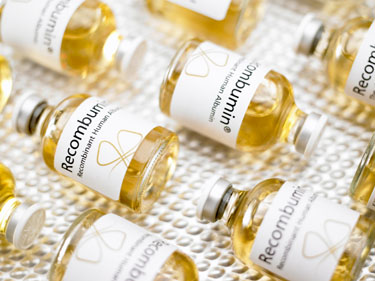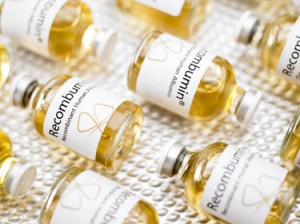Novozymes Biopharma to present latest advances in cell culture technology at ESACT
Posted: 12 April 2011 | | No comments yet
Novozymes Biopharma, will present two scientific posters at the 2011 ESACT meeting…


Study findings highlight the application of animal-free recombinant supplements in cell-based viral vaccine production and animal-free cryopreservation and recovery media.
Novozymes Biopharma, part of Novozymes A/S, world leader in bioinnovation, today announced that the company will present two scientific posters at the 2011 ESACT meeting, May 15-18, Vienna, Austria. The posters highlight the application of animal-free recombinant supplements in cell-based viral vaccine production as well as animal-free cryopreservation and recovery media. For more information or to request a copy of the scientific posters, please visit booth #117 at the 2011 ESACT meeting or www.biopharma.novozymes.com.


Study findings highlight the application of animal-free recombinant supplements in cell-based viral vaccine production and animal-free cryopreservation and recovery media.
“Novozymes is delighted to present its latest study findings in cell culture applications at ESACT,” comments Dermot Pearson, Marketing Director at Novozymes Biopharma. “We’re working continuously to develop solutions for the industry’s most challenging problems and are pleased to be able to demonstrate these latest advances that will help to optimize each stage of the biomanufacturing process.”
The first new poster, entitled “Application of animal-free recombinant bioactive protein supplements to improve the performance of cell-based viral vaccine production,” demonstrates the potential of protein supplements to improve growth performance of cell culture media in the absence of serum for cell types important in viral vaccine production.
The second poster, entitled “Animal-free cryopreservation and recovery media,” examines recombinant human albumin (rAlbumin) for its ability to replace serum in the cryopreservation of CHO and hybridoma (Sp2/0) cells.
Recombinant forms of other protein components of serum are also assessed for their ability to support cell growth during the initial recovery period following thawing. The findings of both studies will be presented at ESACT 2011.
During the meeting, Dr. Nicholas Timmins, Research Fellow, Australian Institute of Bioengineering and Nanotechnology, The University of Queensland, will deliver a presentation entitled “Ultra High Yield Manufacture of Red Blood Cells (RBC) in Fully Defined Animal Component Free Medium.” The presentation will demonstrate how using Novozymes’ recombinant transferrin and albumin products can eliminate the use of animal- and donor-derived medium components in RBC production. The presentation will take place on May 16 during Session II: Cells as Therapies and Stem Cells.
For further information on Novozymes’ range of cell culture products or to request a copy of the scientific posters, please visit booth #117 at the 2011 ESACT meeting or www.biopharma.novozymes.com.
Related organisations
Novozymes A/S, Novozymes Biopharma, University of Queensland




